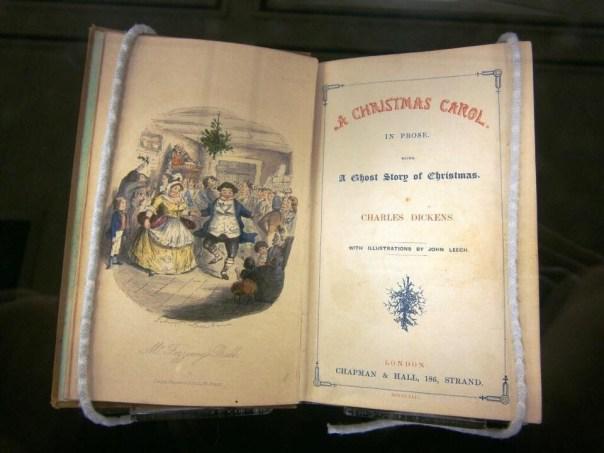
The Man Who Invented Christmas
Before rushing to see Star Wars:The Last Jedi, I spent yesterday afternoon watching a whimsical film for the Holidays called The Man Who Invented Christmas. It’s a mostly fictional look at the journey that led to Charles Dickens’ creation of A Christmas Carol, the timeless tale that redefined the essential soul of modern Christmas.
It was, after all, on this day in 1843 that Dickens published his tale of Ebenezer Scrooge, “a squeezing, wrenching, grasping, scraping, clutching, covetous old sinner. Hard and sharp as flint, from which no steel had ever struck out generous fire.” The movie is a reminder that in 1843, Britain’s most celebrated novelist (played by Dan Stevens of Downton Abbey fame), is at a low point in his career. His previous novel, Martin Chuzzlewit (1842) was a flop. He was strapped for cash with family expenses piling up. Determined to recover, Dickens decides to write a Christmas story and self-publish it in less than two months. As he struggles to write to his self-imposed deadline, his estranged father and mother come to bunk with him. Still haunted by painful memories of his father ruining his childhood because of his financial folly, Dickens develops a writer’s block which seems to have no solution. As such, Dickens must face his personal demons epitomized through his characters, especially in his imagined conversations with Ebenezer Scrooge played by Christopher Plummer.
It may seem odd but at the time of the books’ publication, the celebration of Christmas was somewhat controversial. Puritans in England and America argued rightly that Christmas was a close cousin to the pagan celebrations of the winter solstice. Many Christians felt that the extravagance of Christmas was an insult to the poverty advocated by Christ. Nevertheless, A Christmas Carol, written in 6 weeks, had a first run of 6000 copies sell out in 6 days. Although released by an established publisher, Dickens was unwilling to take a lump-sum fee for the story and so instead published it at his own expense.
As he wrote in the Preface, “I have endeavoured in this Ghostly little book, to raise the Ghost of an Idea, which shall not put my readers out of humour with themselves, with each other, with the season, or with me. May it haunt their houses pleasantly, and no one wish to lay it.”
Through Jacob Marley’s visit and that of three phantoms foretold, Ebenezer Scrooge is snatched from the abyss and left laughing in his chair until he weeps and is reborn. He internalizes the lessons taught by his spectral visitors. And he was no backslider. He made his conversion public and never wavered. “Scrooge was better than his word. He became as good a friend, as good a master and as good a man as the good old city knew.” Ebenezer raised not just Bob Crachit’s salary but the spirits of every person he met.
May that be said of all of us.
Post a comment